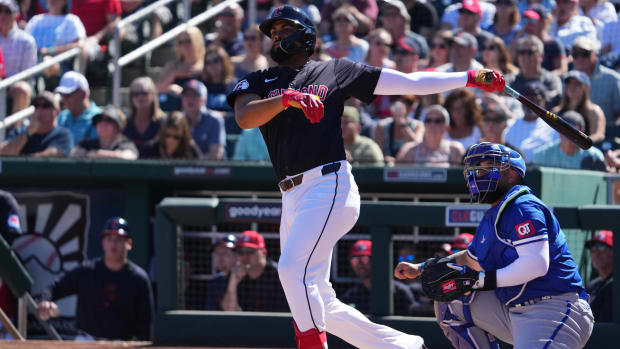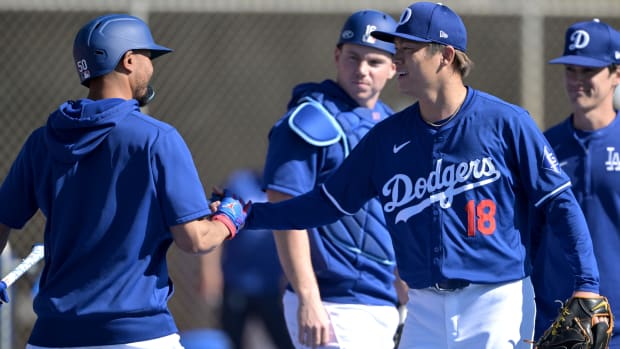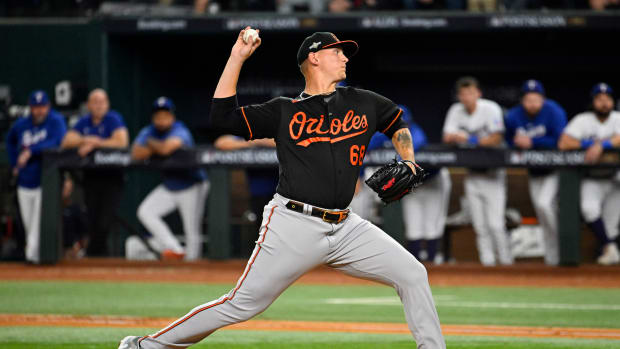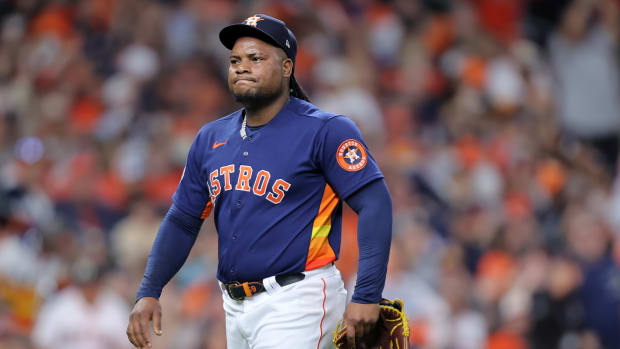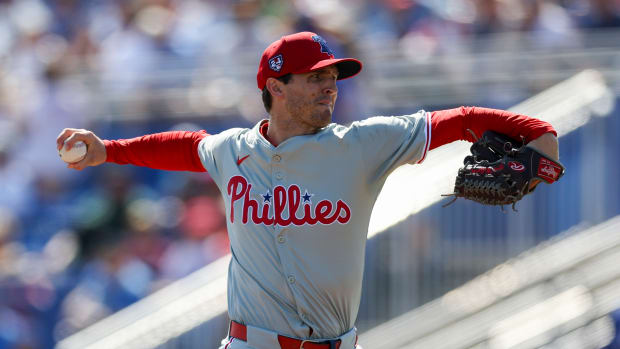A-Rod, LaTroy Hawkins last players left from work stoppages
SCOTTSDALE, Ariz. (AP) Alex Rodriguez and LaTroy Hawkins are the dinosaurs, the last relics remaining from baseball's era of labor strife.
Of the 8,343 men who have appeared in the major leagues since the first walkout in 1972, they are the only active players who sat out during a work stoppage.
''Wow. Longevity,'' Hawkins said one morning at spring training. ''And let's hope we're the last to experience it.''
Baseball slogged through five strikes and three lockouts over 34 seasons through 1995, forcing the cancellation of 1,720 games and the 1994 postseason. When players and management negotiate a new labor contract to replace the deal that expires in December 2016, almost no members of the union will have personal knowledge of industrial conflict.
''A lot of players don't really know the history, don't know the sacrifices that were made to get them to where they are now, and think that it's all just happened naturally,''` said Dick Moss, Marvin Miller's top lawyer at the union from 1966-77. ''There's a lot of education that has to be done.''
Retired players who fought the battles say many of today's big leaguers don't understand the gains achieved and the losses incurred. The average salary has increased from $34,000 in 1972 to more than $4 million this season, and the major league minimum has risen from $13,500 to $507,500.
Players are guaranteed ''first-class jet air and hotel accommodations, if practical'' in their collective bargaining agreement. Since 1997, all big leaguers must be given single rooms on road trips.
''I told them that we used to have roommates on the road. They were laughing,'' recalled Darren Oliver, who retired in 2013 and was the last active player from the first season of the 1994-95 strike. He said the response usually was an incredulous: ''Roommates on the road?''
Hawkins and Rodriguez were caught in the strike in 1995, frozen from playing because they were on 40-man rosters. When opening day was pushed back from April 2 to April 25 and every team's schedule cut 18 games to 144, each lost $12,111 of his $109,000 salary - then the big league minimum.
''Is he the senior member or am I the senior member in the league?'' Rodriguez said with a smile in the New York Yankees clubhouse before learning he has the edge over the Rockies' reliever. ''That means I'm old.''
Rodriguez, who turns 40 this summer, made his major league debut with Seattle on July 8, 1994. He was optioned to Triple-A Calgary that Aug. 2, 10 days before the strike began, and completed his season in the minor leagues.
Hawkins, now 42, spent 1994 in the minors but was put on Minnesota's 40-man roster that Nov. 18 to protect him from the winter meeting draft. He recalls hearing Greg Maddux, Kenny Lofton and Kirby Puckett talking about the strike during a meeting at a hotel near Phoenix's airport.
''My grandfather worked at U.S. Steel, so he's part of a union and they went through a couple strikes,'' Hawkins said. ''When we were going through it, my grandfather was telling me about it, you know, what to expect.''
Of the 762 major leaguers on the day the strike began, the last to play was Oliver, who spent 2013 with Toronto. A rookie with Texas in 1994, Oliver lost $49,306 due to the strike: $30,973 of his minimum salary the first year of the walkout and $18,333 of $165,000 when the 1995 season started late.
''I was hoping they would send me down to the minor leagues so I could keep on getting paid,'' he recalled. ''They said, no, no, we can't send you down. If they sent you down to the minor leagues and then if we pick up the season and start playing, then I would have had to stay down for 10 days, and they didn't want that.''
When it comes to the next round of negotiations, it won't be just the players who are inexperienced. Tony Clark, a former All-Star first baseman, became union leader when Michael Weiner died in 2013. He's confident his members will be ready.
''We have players who are on teams now that are aware of or familiar with 2002, when although we didn't have a work stoppage there was a strike deadline, the clock hit zero,'' he said. ''It's always going to come down to players' understanding of the issues, players' willingness to be engaged, and a player's willingness to negotiate and be a part of what should be a very fair and equitable deal for both sides. I have absolutely no concerns about the resolve of our guys if we can't come to a place where a fair and equitable deal can be made.''
---
Blum reported from Tampa, Florida.
---
AP Baseball Writer Janie McCauley contributed to this report.






























